
Johan Christian Fabricius was a Danish zoologist, specialising in "Insecta", which at that time included all arthropods: insects, arachnids, crustaceans and others. He was a student of Carl Linnaeus, and is considered one of the most important entomologists of the 18th century, having named nearly 10,000 species of animals, and established the basis for the modern insect classification.

Reginald Innes Pocock F.R.S. was a British zoologist.

Brontosaurus is a genus of gigantic quadruped sauropod dinosaurs. Although the type species, B. excelsus, had long been considered a species of the closely related Apatosaurus and therefore invalid, researchers proposed in 2015 that Brontosaurus is a genus separate from Apatosaurus and that it contains three species: B. excelsus, B. yahnahpin, and B. parvus.
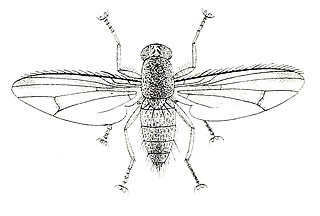
The Curtotonidae or quasimodo flies are a small family of small grey to dark brown humpbacked flies (Diptera) with a worldwide distribution, but with very few species in the Nearctic, Australasian/Oceanian, and Palaearctic regions. Most members of the family are found in tropical to subtropical latitudes in Africa and the Neotropics. Many remain undescribed in collections, since little work on the family has been done since the 1930s.
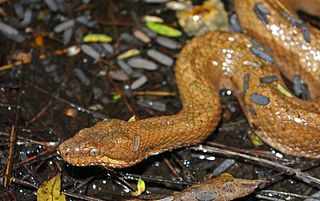
Tropidophis, common name wood snakes or West Indian wood snakes, is a genus of dwarf boas endemic to the West Indies and South America. Currently, either 17 or 33 species are recognized, depending on the authority.

Cyclanorbis is a genus of softshell turtles in the family Trionychidae. The genus is endemic to Africa.

The big-headed Amazon River turtle, also known as the big-headed sideneck, is a species of turtle in the family Podocnemididae. The species is monotypic within the genus Peltocephalus.

Maruca is a genus of moths of the family Crambidae, commonly known as bean pod borers.
Megastes is a genus of moths of the family Crambidae.
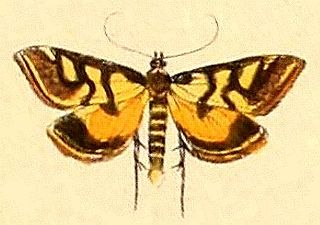
Metallarcha is a genus of moths of the family Crambidae.

Metoeca is a genus of moths of the family Crambidae. It contains only one species Metoeca foedalis, which has a wide distribution, including the Democratic Republic of Congo, Equatorial Guinea, South Africa, China, Japan, Taiwan, Thailand, Myanmar and Australia (Queensland).

Nosophora is a genus of moths in the family Crambidae.

Polygrammodes is a genus of moths of the family Crambidae.
Proleucinodes is a genus of moths of the family Crambidae.
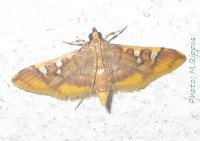
Prophantis is a genus of moths of the family Crambidae.
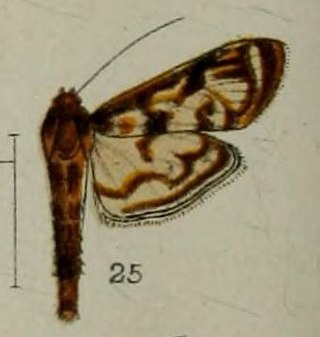
Rhimphalea is a genus of small moths, which is part of the family Crambidae.

Syngamia is a genus of moths of the family Crambidae.
Sacculosia is a genus of moths of the family Crambidae. It contains only one species, Sacculosia isaralis, which is found in Colombia.
Voliba is a genus of moths of the family Crambidae described by Walker in 1866.
Pinkfloydia is a genus of small Australian long-jawed orb-weavers, reaching a maximum lengths of about 4.5 millimetres (0.18 in). It was first described by D. Dimitrov & G. Hormiga in 2011, and contains two species, found in New South Wales and Western Australia: P. harveyi and P. rixi. They have a unique rounded, cone-shaped head structure with one pair of large eyes and three pairs of smaller eyes. The genus is named after British rock band Pink Floyd.














